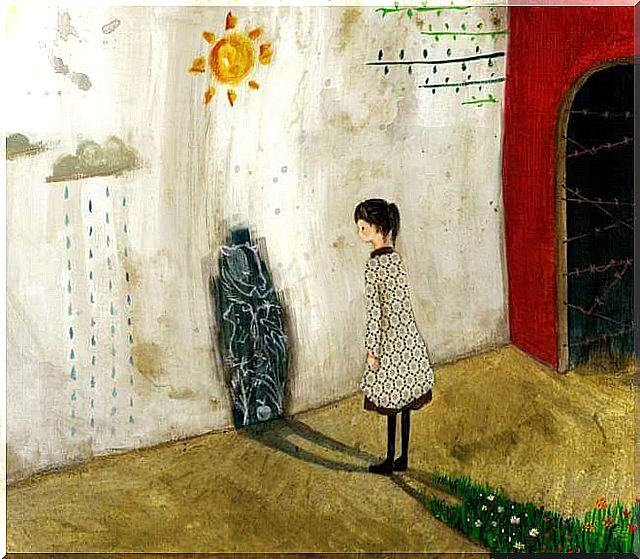How To Detect Negative People?

How can we detect negative people? How can they be made aware of their behavior?
Sometimes we fall into the trap of attributing negative, inappropriate and toxic behaviors to others, being certain that our behaviors are perfectly positive.
If there are many people who are fundamentally negative and who do not hesitate to infect those around us, we are all likely to sink into pessimism at certain periods of our life, if only for a few days.
This is why in this article, we are going to ask ourselves the following question: what are negative people really doing?
Keep in mind that their behavior is more or less harmful depending on their frequency and intensity.
Negativity is not something absolute and has certain nuances.
What is certain, however, is that you have the power to be aware of the nature of these behaviors, to avoid reproducing them.
They speak badly of others
Out of insecurity, envy or simply because they cannot find other subjects of conversation.
Negative people constantly analyze the behavior of others from a very destructive posture.
They reveal intimate things, judge others on bipolar scales (good / bad, crazy / normal, useless / brilliant) and never confront these aspects while trying to find solutions. They just want to be right.

The fundamental difference between negativity and the ability to cope with interpersonal conflict is that toxic people seek to portray everything in black, to criticize everything, without ever acting sincerely in the face of life’s events.
They don’t take the time to look for solutions. If they don’t interest you, go your way quietly.
They settle into little stimulating routines
Usually these are people who dream of a job that brings them stability and comfort, but these two qualities can generate in them a certain rigidity if they stay there for a long period of time.
They lack empathy, lack of communication skills, they judge others very quickly and integrate stereotypes very quickly.
They seek this same comfort in their interpersonal relationships: they can stay in a relationship for a long time without seeking to enrich it.
People who sit comfortably in their lives end up being oblivious to everything that takes place there.
This statement is not an exaggeration of the concept of “comfort zone”, but we must keep in mind, however, that quality of life is generally not synonymous with conformism.
People who project their negativity start by setting up low-stimulating routines.
They seek opinions and not information
When a person is only looking to find opinions that support their posture and they don’t want to face reality, they end up developing a simplistic view of the world and how it works.
Living in this ideological extremism is not only a consequence of ignorance or a lack of a defined identity: it is the prelude of a galloping negativity, which censors everything that does not suit it.
It is the basic operating mechanism of repressive people who lack individual and collective awareness towards the environment in which they find themselves.
They isolate themselves and lack meaningful social relationships
Human beings are social beings who seek to protect themselves from the outside world and who have their own protective cloak.
In this sense, no longer maintaining certain relationships in our existence because they no longer bring us anything is perfectly normal, but that should not prevent us from renewing our social circle.
We can meet new people, in new contexts, while maintaining the relationships of our past which seem important to us.
The key to social well-being is in anchoring and adapting: anchoring well-being in meaningful relationships and adapting our trajectory to new social circles that correspond to our values and our goals.
The harmony between these two points is always a source of happiness.

They show too much ego
The excess of ego has various well-established consequences: a lack of self-criticism, a certain rigidity in intimate relationships and the search for recognition beyond even the individual’s own capacities.
The result of this excess character trait is negativity based on lack of self-knowledge and strong suspicion towards others.
So this does not necessarily characterize people who expect a little exaggerated recognition after having done a good job, but many more negative individuals.
Excess of ego is the anti-thesis of true self-esteem: it only feeds on the approval of other people, which makes people who suffer from it submissive and easily influenced characters.
These types of personalities are self-sustaining and seeking to perpetuate themselves.
They hide behind their family and friends
Many people hide their flaws behind difficult family situations.
Their lack of punctuality, bad manners and lack of empathy are believed to be explained through the prism of family issues which are not always real and which, anyway, cannot justify any behavior.
No one denies the fact that they may have experienced adverse circumstances in their childhood, but this does not justify their not taking responsibility for their actions and not seizing the opportunity to correct behavior. that they have and that we can classify as extremes.
They focus on things they can’t change
Negative people always set unachievable goals for themselves in relation to their initial situation and despise more realistic and accessible goals which, by implication, can serve as a stepping stone to reach slightly higher ambitions.
This indicates the need to justify their failures by the importance of the objectives they had to achieve.
They thus validate their situation in the eyes of others and their self-esteem is saved.

They work excessively
Working excessively is not a demonstration of a certain capacity or a sense of responsibility: it is the testimony of an inability to filter out the objectives we have to better organize our working time.
This is something that affects not only our work, but also our free time. This situation generates, most of the time, negativity.
A person who has little free time, whose day is filled with obligatory activities that they do not like, is a person at risk of turning negative.
However, that does not mean that our agenda should not be filled, but we must reserve time to breathe and to regain strength.








